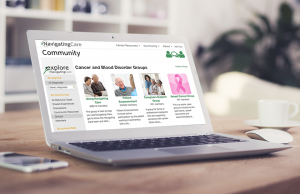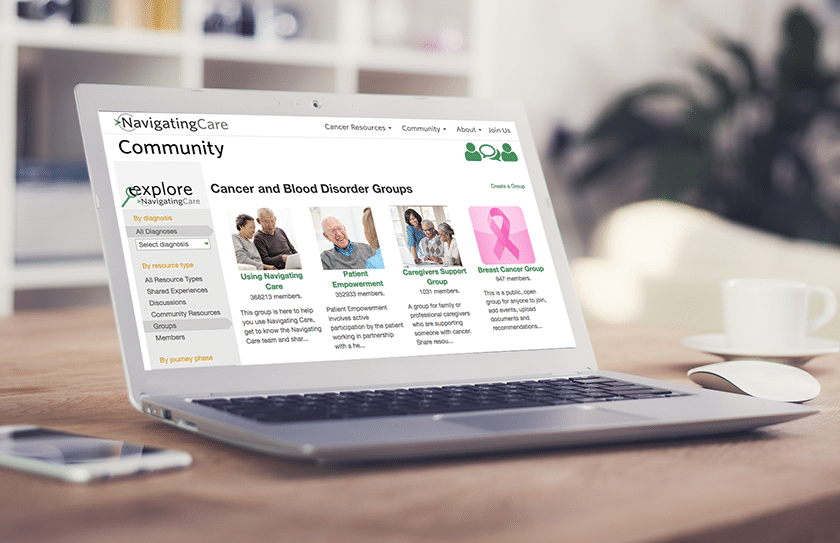
It’s probably safe to say that true patient engagement is widely accepted as one of the primary drivers that will enable successful value-based cancer care. As the cost of care continues to rise to levels that are unsustainable and low medication adherence persists as a serious issue, figuring out how to achieve engagement in a meaningful and cost-effective way is essential.
Patient engagement is often thought of in terms of the patient – provider relationship. Engagement efforts focus on facilitating communication between the patient and their care team, providing educational material to support shared-decision making and giving patient access to information like health records and upcoming appointments. A recent article that highlighted research published in the American Journal of Managed Care was a good reminder that peer support also plays an important role when it comes to engagement and adherence efforts.
The research looked at the available literature regarding poor medication adherence and found that while there are many potential reasons, peer-to-peer support stood out as a positive factor on adherence and wellness decisions. The literature showed that when a patient is around others like them they are encouraged and feel supported as they try to follow a treatment plan.
At Navigating Cancer, we survey patients who use our platform and are involved with our support community and we see lots of comments that echo these findings:
- “It is a good support system among patients who are going through the same things; perhaps they don’t feel so lonely because of the system knowing someone else is going through it as well.”
- “It’s reassuring to me that there are other people with the same problems that I’m experiencing and how they’re dealing with it.”
- “Being able to communicate with others who have my diagnosis is helpful and supportive.”
- “The support groups gives you the sense and feeling you are not alone in dealing with your current situation.”
- “Not everyone is comfortable talking with others about their medical issues. This has helped me find questions that I wouldn’t have thought to ask and I like reading what others’ experiences and resolutions are and the support from others I don’t even know is amazing.”
The research made the compelling distinction that the care team gives a patient the “why” for their treatment, but a social support group can give them the “how.” Knowing there are others who have experienced the same thing gives patients hope, it provides an example to follow and results in a feeling of personal empowerment.
The authors concluded, “Reducing barriers and improving medication adherence can be done with a low-cost community strategy that focuses on patient support, education, and empowerment.”
If you would like to learn more about Navigating Cancer’s community support groups and services, contact us today.
